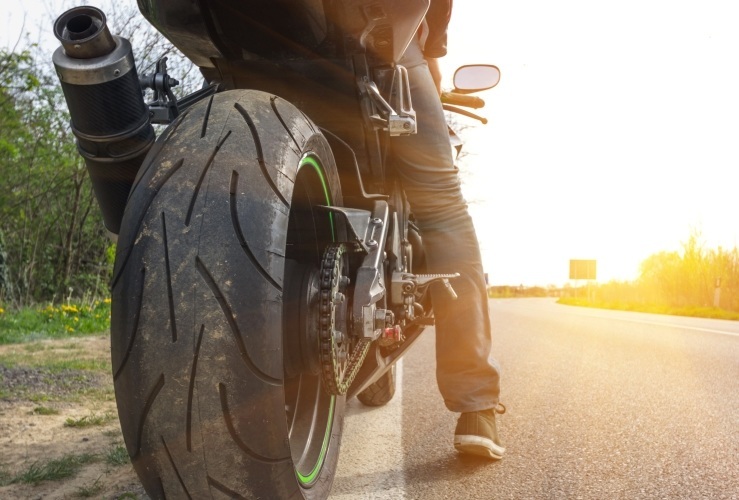
There are few greater feelings of freedom in life than hitting the open road on a motorbike. However, while it can be an extremely liberating experience, it can also be a dangerous one. This is why it is important to ensure you are as safe as possible when out for a ride.
Between 2012-13, government statistics reveal that 4,866 motorcycle users were seriously injured out on the road, and the total number of casualties for motorcycle users stood at 18,752. Positively, however, these figures marked a three percent decrease, respectively, on totals from the previous year.
While accidents and injuries are decreasing for motorbike users in the UK, it is still vitally important that you protect yourself when out on the road. As well as having top-quality recovery insurance in place should you suffer a breakdown, you must also ensure you are wearing the correct safety equipment and observe the applicable rules and guidelines for riding your vehicle across the country.
Here are some essential motorbike safety tips.
Helmets
Having the right helmet could save your life. It’s as simple as that. When buying this vital piece of protective equipment, be sure to check if it has been given a “SHARP” safety rating. This government-approved system rates a helmet’s safety from one to five stars.
Furthermore, helmets sold in the UK must satisfy either British Standard 6658: 1985 or ECE Regulation 22.05 standards. This information can be found on a label sewn on to the helmet's retention system.
According to the government’s motorbike safety advisory, THINK!, you should always make sure the helmet is secured properly. Check the chin strap and the adjustment before you embark on a journey.
There are four main things to look for when purchasing a helmet: the fit, how comfortable it is, how safe it is and how much noise you can hear.
Helmets should feel “snug around your cheeks” and “hug your head” according to THINK!. If the helmet moves when you shake your head it is too big and will not offer adequate protection. When it comes to comfort, you should make sure that while the helmet is tight fitting, it doesn’t cause any pressure points.
In addition to checking the SHARP safety rating, consider choosing a helmet that is brightly coloured, as this will help drivers spot you in the dark. If your helmet is noisy, it can affect concentration levels and increase the chances of tiredness. The fit of your helmet, your riding style and the type of bike you ride can all contribute to noise levels.
Ride defensively
Always be mindful of other road users around you. Protect yourself at all times from other motorists, while attempting to anticipate certain problems you might encounter along the way.
For example, check you are riding at a speed where you can stop safely and comfortably should the unexpected happen. You should also pick a position in the road that offers maximum visibility.
Before you carry out any manoeuvre, take a glance over your shoulder to see what is happening behind you. When you are certain you are in a safe position to do so, make your move.
Clothing
If you are wearing normal clothes when riding a bike, they will offer little protection should you happen to fall off. Your clothes will likely rip and tear on the road surface, leading to some severe injuries.
This is why it is so important to wear appropriate safety clothing. Motorbike leathers are the best option to help keep you from harm. When buying your jacket and trousers, make sure they are a good fit first and foremost, while added extras offer just a little bit more cover.
Leathers with integrated body armour offer increased protection for particularly vulnerable areas of the body, such as the knees, elbows, back, shoulders and hips, while double or even triple stitching helps to minimise the risk of rips along the seams.
When it comes to zips, make sure they are covered by an extra piece of leather. Not only could these cause extra damage if pressed up against the skin, the heat caused by friction in an accident means the metal zip could actually give you a pretty nasty burn.
Look for a back protector, too, as this can help support and prevent damage to your spine in the event of an accident. They help absorb the energy following an impact, meaning it’s less likely you’ll suffer a severe injury to your spine or ribs, while your internal organs are offered protection, too.




